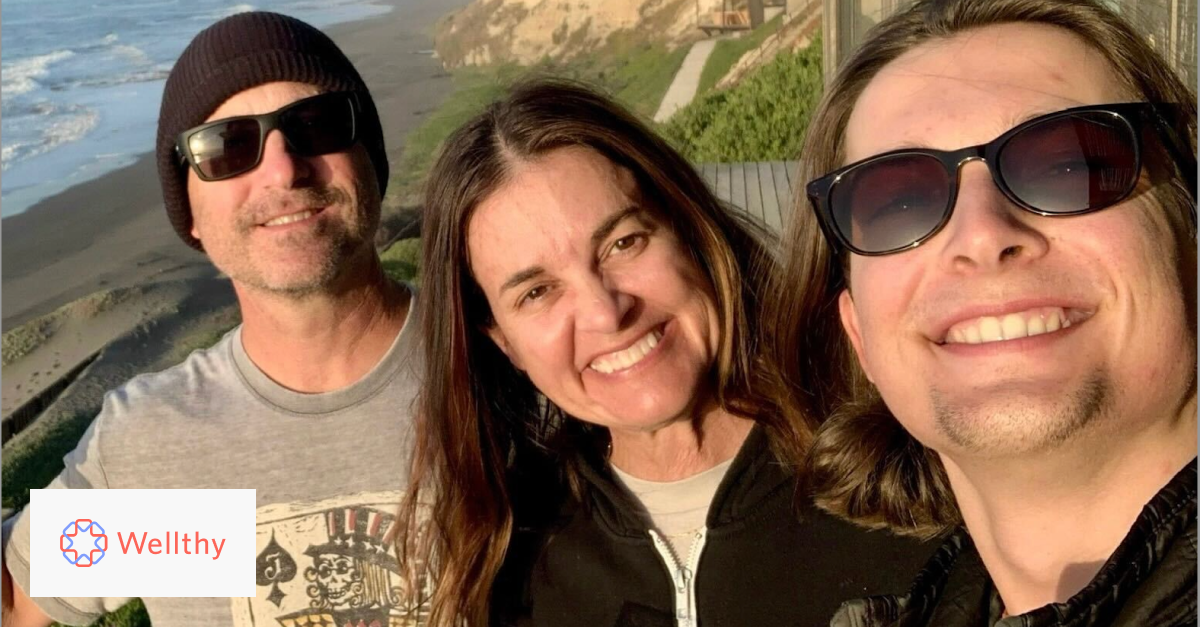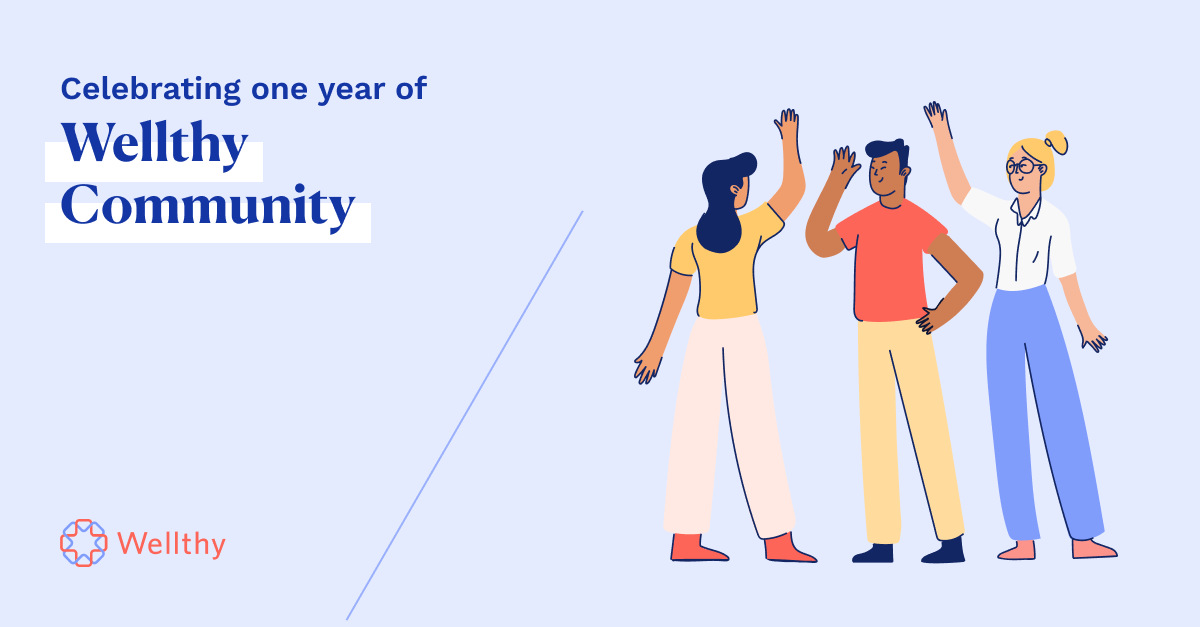As an accomplished lawyer and benefits leader, Scott Daniels brings a wealth of knowledge and expertise to his role as Wellthy's first General Manager of Leave Navigation.
Throughout his career, Scott has navigated the complex landscape of employee benefits, disability, and leave of absence, developing a deep understanding of the challenges and opportunities that employees and employers face.
In this “Six Questions” series, we asked Scott to reflect on his professional journey, what makes the leave of absence experience a particularly complex and cumbersome experience for many, and why he’s so passionate about reimagining leave for today’s workforce and so many families.
From his perspective on the current state of leave management to his thoughts on why families need a more holistic approach to leave, Scott sheds light on the importance of comprehensive and versatile leave navigation support. Check out his answers and insights below.
1. You’ve had an incredible journey over the last few years — taking you everywhere from the legal world to human resources teams at some large companies, and from New York City to Philadelphia. What has the journey looked like for you over this last decade or so, and how has that experience led you to Wellthy?
Well first and foremost I’m a husband and I’m a dad. Family care is central to my life — something that rings true for so many working families. And that’s one of many reasons why I’m so thrilled to be joining Wellthy’s team - working alongside some amazing leaders shaping eldercare, child care, and the future of work.
I'm a lawyer by trade — sometimes I say a recovering lawyer. After working in a firm for a number of years, I jumped over to the corporate world and spent 9 years with Comcast NBCUniversal, where I oversaw absence and disability programs, benefits policy, and some health and welfare compliance.
What I’ve always recognized in the absence and disability space is that there’s always been this gap in the leave of absence industry. The focus has been on claims administration. But if we focus just on the claim process, we’re missing an opportunity to help, support and guide an employee through their own care or the care of a loved one.
I’m obsessed with figuring out how to care for folks holistically, and to think through something like leave navigation that could change the game for millions of employees and working parents. The market is desperate for innovation, and it’s exciting to think about how Wellthy can play a part in that.
2.. Taking a step back — while so many of us have heard the phrase Leave of Absence, the concept has a little bit of that “it’s clear as mud” baggage to it. So when we say Leave of Absence, what do we mean by that?
Oftentimes you’ll hear it as LOA, and it’s a concept that’s frequently misconstrued, misunderstood, and misperceived.
Leave can encompass short-term disability, long-term disability, Family and Medical Leave under the FMLA Act, and state paid family leave. It can also encompass medical leave under the American with Disabilities Act, parental leave, worker’s compensation, bereavement, sick leave… and some of the newer types of leave cover sabbatical leave, entertainment leave, or even for pets we now have pawternity leave.
The point of all of those examples is to underscore that there are so many different types of leave, and so when you hear someone say LOA or my leave of absence program is a mess or it’s really hard, it’s important to distinguish these types of leaves.
They all operate differently, and there are ways to positively impact the experience of someone taking a leave or navigating a leave depending on what type. And for employers, they’re often thinking about steps they can take to impact types of leave connected to wellness — disability, workplace accommodations, and more.
3. Many employees say that their leave of absence experience is a mess, often stressful, and not meeting the needs of today’s workforce. Can you paint a bit of a picture of why that’s the case? What makes the leave of absence process so arduous?
Most people, when you think about the leave of absence process, you start with a claim. I would argue the better way to start is well before a leave application process. Before anyone starts an application for leave of absence, they’re dealing with the inability to work. They’re dealing with their own medical condition or caring for a loved one. This alone can be daunting and scary - especially if someone has to navigate the complex health care system.
With a leave of absence claim, an elaborate claims experience is introduced consisting of paperwork and legalese that even a seasoned lawyer would have a hard time understanding.
And the stakes are real and they are high — being approved for a leave of absence can be the difference between being able to pay the bills and keep food on the table, or taking a huge financial hit for many employees and families.
For a lot of employees, leave of absence can be a guessing game and that’s not a comfortable place to be in. There’s an opportunity for us to alleviate the stress, anxiety, fear and confusion that exists with today’s traditional claims processes.
4. Let’s talk briefly about paid family leave, since that obviously comes into play for many families. Right now there are tons of news articles and coverage of what’s playing out in many states around the country. Can you talk a little bit about what paid family leave means for employees, and how the dynamics playing out on a state-by-state basis have an effect on an employees ability to take leave for family care needs?
Paid family leave is a tremendous tie-in to talk about here … thirty years ago, FMLA came onto the scene. That was unpaid leave for people who work for companies with more than 50 employees. This helped to usher in job-protected leave, but it did not pay.
Over the last decade, we’ve seen states step up to say “Hey, people need to take leave, and they should also be paid.” The way I view this is that there’s recognition of the importance of leave — especially for caregiving.
What’s really complicated with paid family leave is that every state has a different law. There are different eligibility rates, benefit rates, funding mechanisms are different depending on the state, who’s administering the paid family leave is different by state — it’s hard and complicated. There have been attempts to simplify it, but the experience is still complex and fragmented.
5. Those questions obviously set the stage for leave of absence and the reality facing so many employees and employers today when it comes to leave. What do you think could help make the leave experience less onerous and stressful for families, and what could be done to make leave of absence less of a fraught term for many companies?
This is the fundamental question we should be asking ourselves: Why does leave of absence carry a negative stigma when it can be so important to employees? Figuring out how to flip the script on this question could be one of the biggest shifts for wellness that we could see in today’s workforce.
My belief is that it has never been more critical to provide employees with navigational support before, during and after their leave claim. And not just for their leave. The best employee advocacy will navigate an employee with their leave claim AND their individual caregiving needs and responsibilities.
When an employee is facing the need for leave, they are not interested in learning about the intricacies of FMLA or the eligibility requirements of their respective state paid family leave. They’re interested in care support that can help them get through the urgent situation that’s in front of them or in front of their families.
Employers and leave administrators have a golden opportunity to support, empathize and navigate employees through their leave journey — so that they not only better understand the process, but see their needs are cared for in a holistic manner that spans well beyond their leave claim.
6. In your life outside of Wellthy, what brings you joy and/or what drives your passions?
To make this full circle, I’ll bring it back again to family — spending time with my wife (even if we disagree about whether Philadelphia or NYC sports teams are better), and of course my kids Ellie and Cooper, who are in 6th grade and 3rd grade.
And though Mark Twain once said that golf is a good walk spoiled, I’m a huge fan, and try to get out on the course as much as possible (or as long as the northeast weather will allow me!).







